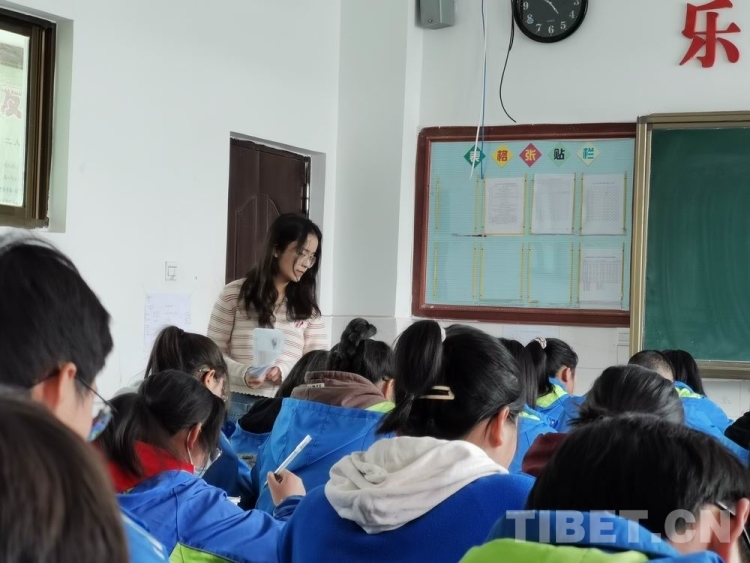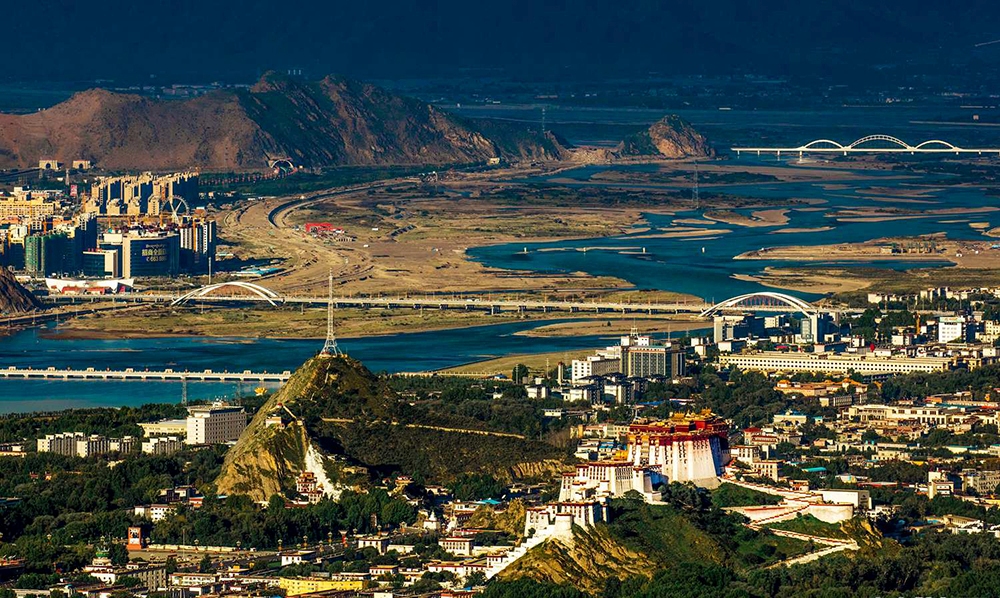The Day Worth Remembering Forever--On the Occasion of Commemorating the Serfs’ Emancipation Day in Xizang
The year 2024 marks the 65th anniversary of democratic reform in Xizang. March 28th of this year is the 15th anniversary of establishing the commemoration day for the emancipation of one million serfs in Xizang. Xizang’s democratic reform is the greatest and most profound social transformation in the history of Xizang. Under the leadership of the Communist Party of China (CPC), within just a few decades, these one million former serfs in old Xizang were not only liberated but also transformed into the masters of the nation and society.
Abolition of Slavery is an Irresistible Historical Trend
Slavery, the cruelest institution entrenched in feudal society, typically originated in Europe during the Middle Ages. This despicable institution allowed feudal lords to exercise personal control over serfs from political, legal, and customary perspectives. The human nature, personality, human rights, and humanity of these serfs and slaves were severely harmed and destroyed, reducing their noble values to merely sacrificial offerings for their lords’ and the theocracy’s power. From the perspectives of economic development, political democracy, and human rights, such slavery represents a barbaric and backward social system. This disgraceful civilization is destined to be abandoned by history.
In old Xizang under its system of slavery, the three major estate-holders (government officials, nobles, and upper-ranking lamas in monasteries) comprised less than 5 percent of the total population. Yet, this small group disgracefully ruled over serfs, who accounted for over 95 percent of the population. What’s more, this elite group monopolized almost all the land, pastures, and other means of production across Xizang. They also controlled the personal freedom of all serfs. A ballad among serfs of the time goes: “Even if the snow mountain melts into butter, it is the property of the masters. Even if the river water turns into milk, there is not a single drop for us.” This ballad vividly depicts how feudal serfdom encroached upon and violated the freedom and dignity of serfs in old Xizang, how a small group of people deprived serfs of the means of production and their fruits, and how these lords made the lives of serfs utterly miserable under such a despicable system.
In 1833, Britain outlawed slavery across all its colonies, and France abolished the institution of slavery twice, in 1794 and 1848. In 1862, American President Lincoln issued the Emancipation Proclamation. Throughout the 19th century, the abolitionist movement surged, leading to a constant struggle marked by bloodshed and gunfire, as one country after another bid farewell to the disgraceful institution of slavery.
On March 28, 1959, Premier Zhou Enlai issued an order from the State Council to dissolve the old local government of Xizang. Subsequently, the Preparatory Committee for the Xizang Autonomous Region was established to govern new Xizang. This move led the local Tibetan people to embark on democratic reforms, effectively dissolving a feudal serfdom system that had been maintained for a thousand years. Consequently, the one million serfs in old Xizang, along with other ethnic groups in China at that time, truly became the masters of the state and society.
The democratic reform fundamentally dismantled the theocracy-featured feudal serfdom practiced in old Xizang, achieving the separation of government from the religion. The former feudal lords' ownership of the means of production was abolished, and the individual ownership by farmers and herdsmen was formally established. Particularly noteworthy was the abolition of personal bondage to the "three major lords," leading to the complete emancipation and freedom of the former serfs.
The liberation resulting from the democratic reform of Xizang in 1959 represents a continuation of the global anti-slavery movement that lasted for hundreds of years. It stands as a pivotal moment in the 20th century’s fight against slavery. From any perspective, the democratic reform in Xizang is recognized as a significant milestone in the advancement of human rights worldwide, sharing the same historical importance as the abolition of slavery in the United States. Moreover, the extent of slavery abolition in Xizang surpassed that in other countries. Unlike the abolition movements in Europe and the United States, which were marked by conflict, China’s democratic reform in Xizang adopted a peaceful approach to emancipate one million of serfs, granting them complete freedom. This peaceful emancipation is undoubtedly a historically pioneering achievement and has become one of the most brilliant and magnificent chapters in the history of the abolition of slavery in the 20th century.
To Commemorate is to Construct a Better Future
In 2005, the United States decided to establish its first slavery history museum in Virginia. On May 10, 2006, French President Jacques Chirac presided over a ceremony in Luxembourg Park in Paris to celebrate the abolition of slavery in France, designating May 10 as an annual memorial day for the abolition of slavery. The United Nations has also designated December 2nd as the International Day for the Abolition of Slavery. These actions underscore that this history remains a common and painful memory for humanity, even though we have turned the page on the era of slavery.
To better remember this history, on January 19, 2009, the Second Session of the Ninth Regional People’s Congress of the Xizang Autonomous Region voted and adopted the Decision of the People’s Congress of the Xizang Autonomous Region to Establish the Commemoration Day for the Liberation of One Million Serfs in Xizang. According to the decision, March 28 was designated as the day to commemorate the event. This day is to be remembered not only by the people of Xizang but also by all ethnic groups throughout the nation.
Sixty-five years ago, the democratic reform in Xizang brought freedom and equality to the snowy plateau, transforming former serfs into citizens. This movement ignited unprecedented enthusiasm for life among the local people, who have since embarked on a prosperous path, significantly improving their lives. Commemorating the liberation of one million serfs in Xizang, remembering the cruelty and darkness of the old feudal serfdom, and celebrating the miraculous progress of new Xizang over the past several decades remind us to steadfastly follow the leadership of the CPC and adhere to the path of socialism with Chinese characteristics. This path is essential for Xizang's development. March 28th is not only a day to reflect on the past but also to prepare for the future and to embark on a new journey together. With this perspective, we must look towards the future and strive for improvement.
It is said that only those who have endured a harsh winter can truly appreciate the warmth of the sun. Similarly, only the million serfs who suffered under feudal serfdom can fully understand and cherish the happiness and progress brought by the new Xizang. To commemorate the emancipation of Xizang’s one million serfs is to highlight the dark history of old Xizang, to showcase the transformative changes under new socialism in Xizang, and to encourage all ethnic groups in Xizang to remember their history, cherish the present, and work hard to create a beautiful future.
Stories

Tibet boarding schools narrow the rural-urban education gap
The boarding school system in Tibet has maximized education opportunities for the children o...
Editor’s Choice
- China Brooks No External Interference in Zangnan Area
- It is groundless accusation smearing the boarding school in Xizang
- Xizang fully guarantees freedom of religious belief: white paper
- Experts hail the release of white paper on China’s policies in Xizang
- Tibetologists refute doomsayers of Tibetan culture, denounce illegal nature of Dalai clique

